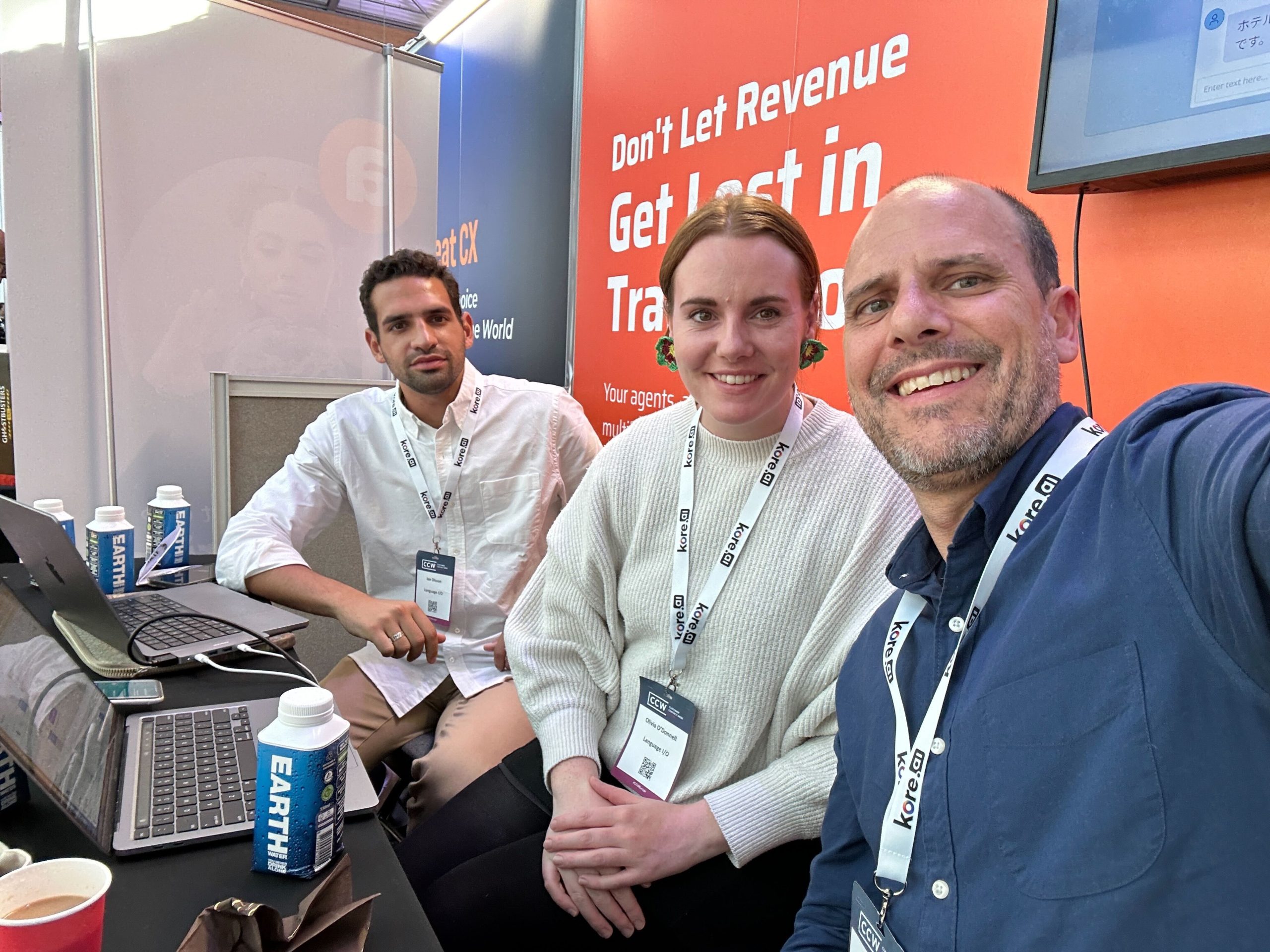Customer Contact Week Amsterdam: Ted’s Musings on Gen AI & Multilingual Capabilities
Ted Treanor, VP Strategic Accounts, Language I/O Last month I was fortunate enough to attend the Customer Contact Week (CCW) conference in Amsterdam. Maybe it was the unusually warm weather, the historic city, or the excellent Dutch food that made this event such a good time, but I think one of the more memorable aspects…

Subscribe to our newsletter
Share
Ted Treanor, VP Strategic Accounts, Language I/O
Last month I was fortunate enough to attend the Customer Contact Week (CCW) conference in Amsterdam. Maybe it was the unusually warm weather, the historic city, or the excellent Dutch food that made this event such a good time, but I think one of the more memorable aspects for me professionally was the excitement around generative AI in all its forms – for better or worse.
Language I/O has had a presence at CCW conferences in the past – both in North America as well as Europe but this was my first opportunity to attend, and I came away encouraged and excited about where technology is taking us. From the outside, the focus of CCW can seem a bit wonky: all things customer contact and support. But what was presented, showcased and discussed regarding contact centers, chatbots and all-things “support”, can be seen as a representation of the larger technology environment and market. The floor was abuzz with the hype of generative AI and LLMs. (I saw a lot of things with the initials “GPT” attached.) If you were an attendee, sponsor or speaker and you weren’t talking about LLMs you might as well have been selling dot-matrix printers!
Despite all this generative ai hype, one thing I noticed was that very little was mentioned about multilingual support. Let me correct that: Some were talking about solutions that could deliver in various languages, but no one was talking about truly focused, multilingual solutions that assure the correct context and accuracy of what is being presented in each language. Some were merely mentioning language capabilities as an aside. What they aren’t saying is that this: multilingual capabilities are more like a side-effect of generative AI. Language support and certainly a true multilingual solution is not the primary focus of an LLM no matter if it is Chat GPT or something else. And just like a generative AI platform can’t answer questions about domain-specific content it was never trained on, neither can generative AI (or any ai-based translation platform) accurately translate content for a domain it was never trained on. So how are these solutions handling industry-specific or brand-specific terminology? What about the context of what is being asked by a customer? Is this truly understood by the LLM? Would you fully trust Chat GPT alone to handle your customers support needs? And what about the security of personal and sensitive data? Most of these LLM models are retaining some content for “training”.
So, (no surprise) I too was there at CCW representing Language I/O and discussing generative AI and LLMs. Specifically, how Language I/O’s solutions can solve these concerns in a cost-effective way. Rather than relying on an LLM to handle multiple languages, even if you were to put the time and effort into replicating the LLM domain adaptation process for each, the more efficient, reliable, and cost-effective solution is to adapt the LLM for one language only. Then implement Language I/O to provide accurate, appropriate-context translations that always follow a zero-trace, ISO 27001-compliant process. With this model in place, you get the benefits of an LLM-based support solution but the assured accuracy, correct, context and security across all languages for much less cost.
I’m looking forward to returning to CCW Europe and Amsterdam next year and I don’t expect the LLM hype to have subsided yet. I’m excited to see what’s next on this front. Let’s hope for great weather in October of 2024 too!
